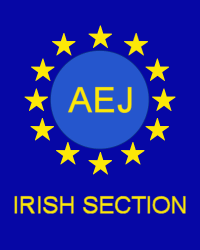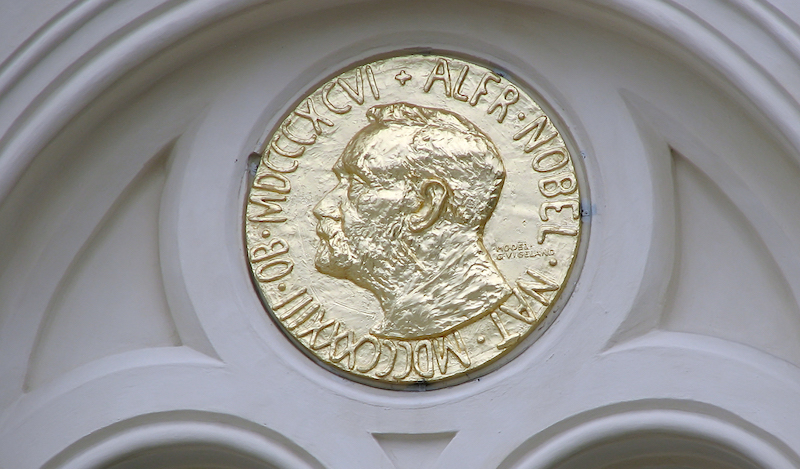William Horsley, AEJ Media Freedom Representative, December 10 2021
Human Rights Day is celebrated every year on December 10, the anniversary of the adoption in 1948 by the United Nations General Assembly of the Universal Declaration of Human Rights. This year fierce battles over free speech and press freedom are being played out in full public view across Europe.
In a rare and highly significant move, on 3 December a vote among the 47 member states of the Council of Europe gave the go-ahead to “infringement proceedings” against Turkey, one of the most conspicuous violators of the European Convention on Human Rights with regard to media freedom. This could ultimately lead to the suspension of Turkey’s voting rights, or even the country’s expulsion from the Council of Europe, the continent’s supreme human rights organisation. To avoid that risk Turkey must release the civil society leader and publisher Osman Kavala, after the European Court of Human Rights ruled that he was wrongfully arrested and detained to silence him and that all charges against him must be dropped.
In a second extraordinary development, on Tuesday this week the Council of Europe’s Secretary General, Marija Pejcinovic Buric, challenged Poland over what are seen as the government’s attempts to interfere with the independence of the country’s judiciary and deny the role of the European Court of Human Rights as the final arbiter of the Convention. The clash followed what she called an “unprecedented” judgement by the country’s Constitutional Court on 24 November.
That judgement said that in certain circumstances Article 6 of the European Convention (fair trial) is “not compliant with the Polish Constitution”. Ms Buric wrote to the Polish Foreign Minister asking him how, in the light of that, Poland’s domestic law would ensure the country upholds its obligations under the Convention. The issue, she wrote, concerns Poland’s commitment to ensuring the right of everyone to a fair trial “by an independent and impartial tribunal” https://rm.coe.int/rau-mfa-poland-sg-article-52-constitutional-court-07-12-2021/1680a4cd03 .
These two events demonstrate the key importance of freedom of expression and the rule of law – upheld by judicial independence — in Europe’s postwar human rights framework, which has been based on the European Convention on Human Rights since the Convention came into force in 1953.
On Tuesday a leading Europe-based investigative reporting network, the Organized Crime and Corruption Reporting Project, condemned the “cascade” of vexatious and groundless lawsuits filed in the past month against the award-winning Serbian investigative team KRIK and its chief editor Stevan Dojcinovic https://www.occrp.org/en/40-press-releases/presss-releases/15619-cascade-of-frivolous-lawsuits-endangers-top-serbian-investigative-journalism-outlet-krik .KRIK’s revelations exposed police collusion in criminal activity and ties between a Serbian oligarch and the dictator of Belarus, Aleksander Lukashenko. The attempts to silence KRIK demonstrate why free and independent journalism is essential to expose high-level crime and corruption and guard against state censorship and autocracy.
Against this background, the Council of Europe has set out a “roadmap” which has been formally approved by all its member states to challenge and reverse what senior officials say is “significant backsliding” away from their legally binding obligations to fundamental rights. Journalists’ safety and stronger protections for independent media against all kinds of interference are at the heart of that commitment.
At a strategic meeting of the Council of Europe’s Media Steering Committee last week on December 1 to 3, senior Council of Europe officials announced a series of initiatives over the next two years to achieve those goals, including a “dedicated campaign” across Europe to improve conditions for the safety of journalists, a new legal framework of protection against abusive or vexatious legal threats or SLAPPs (Strategic Litigation Against Public Participation); and development of fresh policies and mechanisms to guard against disinformation, political manipulation of the media, and harmful impacts on media freedom of the new age of digital convergence and Artificial Intelligence.
The Strasbourg-based Council of Europe, like the European Commission in Brussels as it prepares to adopt a new Media Freedom Act, promises to reach out to journalists’ organisations and other civil society groups to contribute and participate actively in these various plans and projects. For details see the Steering Committee on Media and Information Society’s website https://www.coe.int/en/web/freedom-expression/cdmsi .
This year December 10 is a day for journalists and others to celebrate for a special reason. Dmitry Muratove, editor of Novaya Gazeta in Russia and Maria Ressa, founder and chief of Rappler in the Philippines, are both in Oslo, Norway, in person to receive their joint Nobel Peace Prize. It is a truly extraordinary tribute to their courage and their inspiration to others, and a public recognition of the vital importance of journalism as a public good. The ceremony can be seen live here: https://www.rappler.com/world/global-affairs/video-maria-ressa-dmitry-muratov-receive-nobel-peace-prize-oslo-norway-december-2021/

